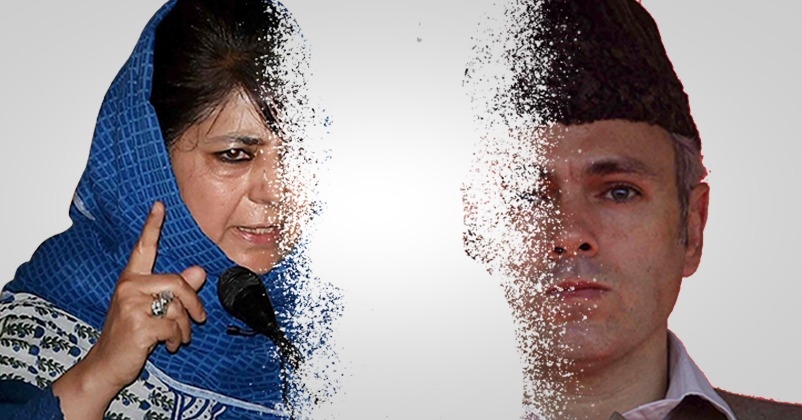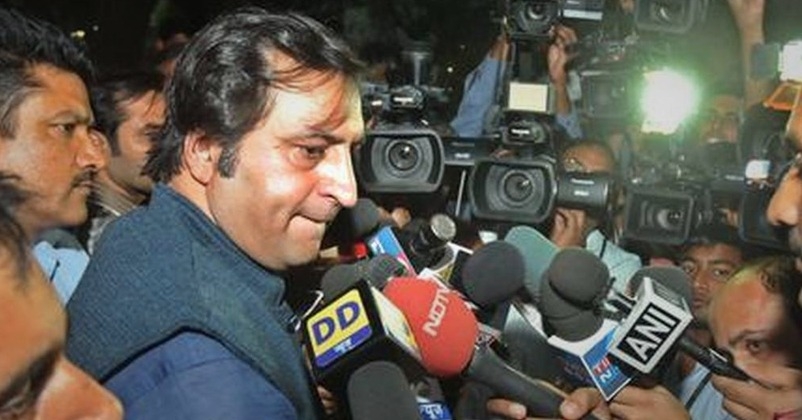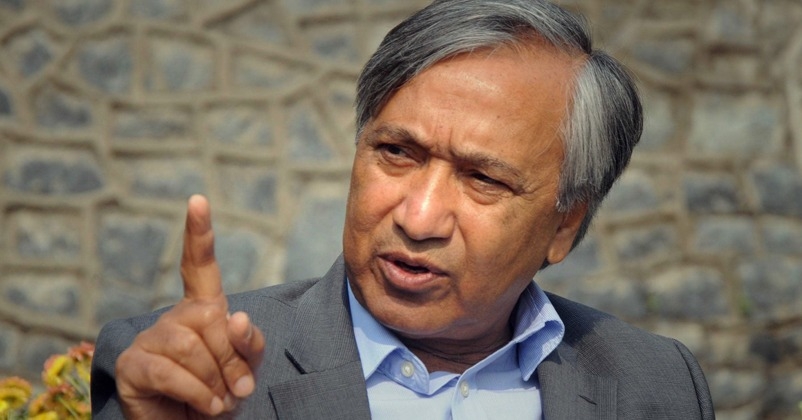Post-35A-era: Where do J&K politicians stand? PDP & NC heading towards annihilation
| 03-Sep-2019 |

By Sant Kumar Sharma
The new constitutional and legal status of the state of Jammu and Kashmir, divided into two Union Territories, that comes into effect on October 31 this year, poses an existential threat to politicians of different hues. For them, it is very difficult, and almost unimaginable, as to how they can counter this move of Union Home Minister Amit Shah.\
Practically, there is little they can achieve by way of changing the emerging status quo as they have no say in the Parliament.
With two-third members in the Rajya Sabha and three-fourths in the Lok Sabha backing the government, no succuor is possible in either House for those who are challenging the relevant legislation. Of course, when the next session is held, some opposition membera can, and will, try to disrupt proceedings.
The swift moves of the Modi government to render Article 370 ineffective, and abolish Article 35-A, are really difficult for the politicians of the state to come to terms with. Yet, they have little choice but to accept that fact, and twiddle their thumbs and plan to do this, or that.
Significantly, the state flag stands removed from some important public places and other actions to create two successor UTs are apace. The plans to hold some elections at the local levels are also being made, the elections to bodies which were boycotted by the National Conference and the People's Democratic Party (PDP).
After June 19, 2018, when the BJP walked out of the coalition with the PDP led by Mehbooba Mufti, it managed to disentangle itself from political oblivion. Over the next few months, the PDP stock had declined sharply. It seemed headed for annihilation then.

What will be its stance in post-35-A era? How strident will Mehbooba be in her articulations about the changes that are unfolding? How much freedom is allowed to her to play her politics? These things will determine the PDP stance, actions and standing in the coming days when the curbs are loosened gradually in Kashmir.
The National Conference of Abdullahs was in a celebratory mode after Mehbooba's fall. Most NC leaders were smug, almost sure that their party would come back to power whenever elections to the state assembly were held. The swagger in their walk and talk was obvious to those who cared to pick up small political posturing. What about them now?
What will be the NC's fate in the changed scenario? Is there any chance the party will boycott the assembly elections for the UT of J&K whenever these are held? After a fresh delimitation where weightage of the Kashmir Valley is sure going to be reduced under the Representation of People's Act 1951. Any delimitation for sure will be against the public stance of the NC leadership.
Will Omar Abdullah contest and try to win a majority in the newly carved out assembly constituencies? Can he, in that situation, become CM of a future UT of J&K with far more reduced powers than he enjoyed in his earlier tenure from 2009 to 2014? The reaction of the party cannot be predicted right now and remains to be seen.
What about Sajjad Lone of the People's Conference and his association with the BJP, once upon a time? Again, there are no clear indications of what he can achieve after the new changes. His party had only two MLAs in the 87-member assembly after 2014 elections and he became a cabinet minister from the BJP quota.
Will he back the BJP decision or go against it on public forums? That remains to be seen in the coming days as he is allowed to speak up. It is over three weeks almost that the Central government has curbs in place firmly and there are little signs of its resolve weakening during this time.

Yusuf Tarigami of the CPI-M is another political leader who seems to matter in the discourse on Kashmir. So far, he has remained away from the public eyes, apparently under house arrest, or worse, just as many others like him are. The party stance on the issue of the two articles on J&K will be watched closely once he is out in public.
That leaves us waiting to hear the views of leaders like Muzaffar Beigh of the PDP, Ghulam Hassan Mir, another founder of the PDP, Hakim Yaseen and a couple of others. The views of the separatists on the new changes would be amusing, to say the least, for they would be talking about the changes in the Constitution of India in which, by definition, they do not believe!
It would be immensely mirthful if we find tomorrow, once the curbs are lifted, Moulvi Omar Farooq and Yasin Malik defending Article 35-A and Article 370! Or SAS Geelani and others like him extolling the virtues of the state subject laws framed by Maharaja Hari Singh. Those scenes look possible, if not probable, with the changes that have been effected by Modi-Shah duo.
It would not be fair to not talk about the Congress though the party stands totally marginalized in Jammu and Kashmir. When the time comes, we will hear the views of state party chief Ghulam Ahmed Mir, and some others. We have already seen party veteran Ghulam Nabi Azad being thwarted on airports in Jammu as also in Srinagar. His lamentations on Article 370 and 35-A have largely gone unheeded so far.
That brings us to Modi's party, the BJP, which seems to be the only sure gainer in the changing circumstances. Parting ways with Mehbooba's PDP had helped it escape public anger in the Jammu region, which is its stronghold. It has gained a lot since the events of last year and it's stock has gone up, up and further up.
The parting of ways with Mehbooba, Modi's victory at the Centre and now the demise of Article 35-A has all helped it improve its chances of performing better. Better than what it had done in 2014 assembly elections when it scored 25/87. The BJP seems to be the only party sure of making gains in the new UT of J&K.